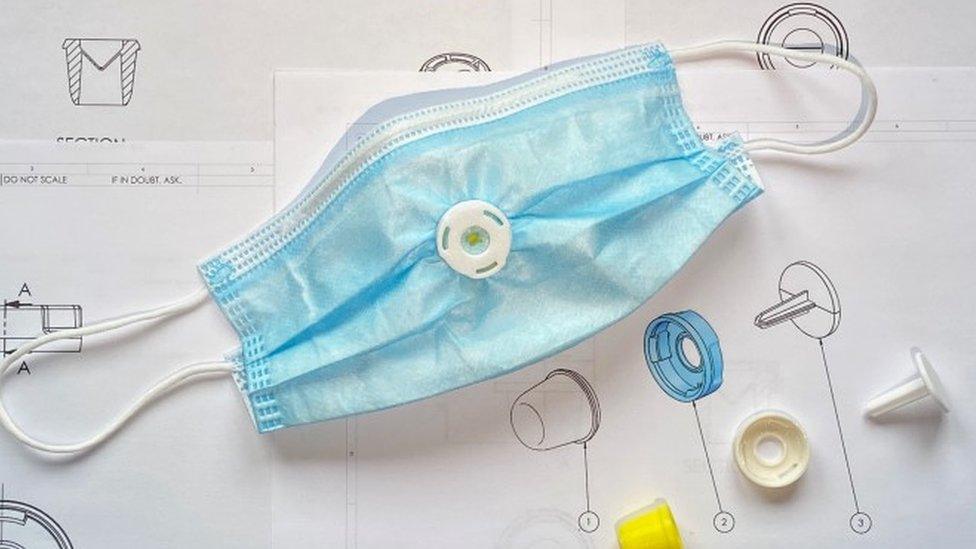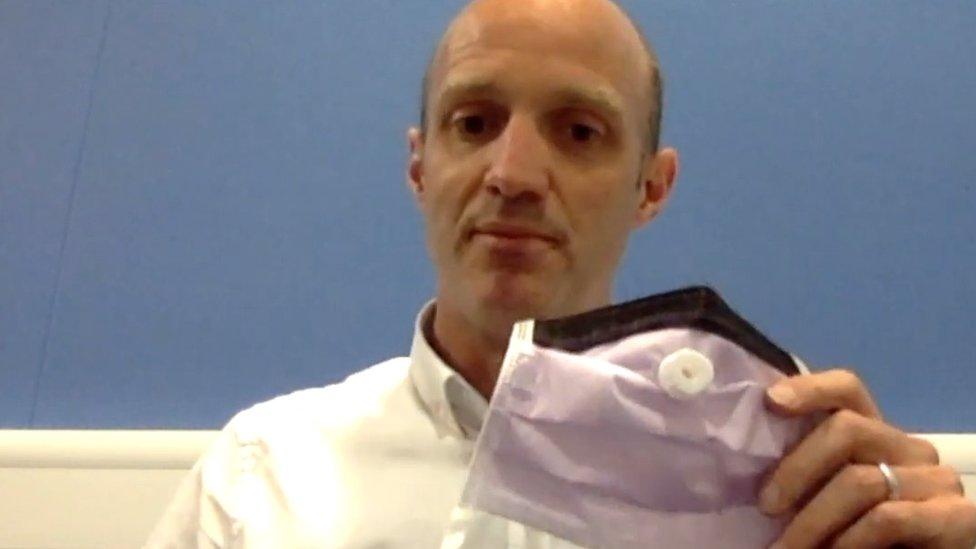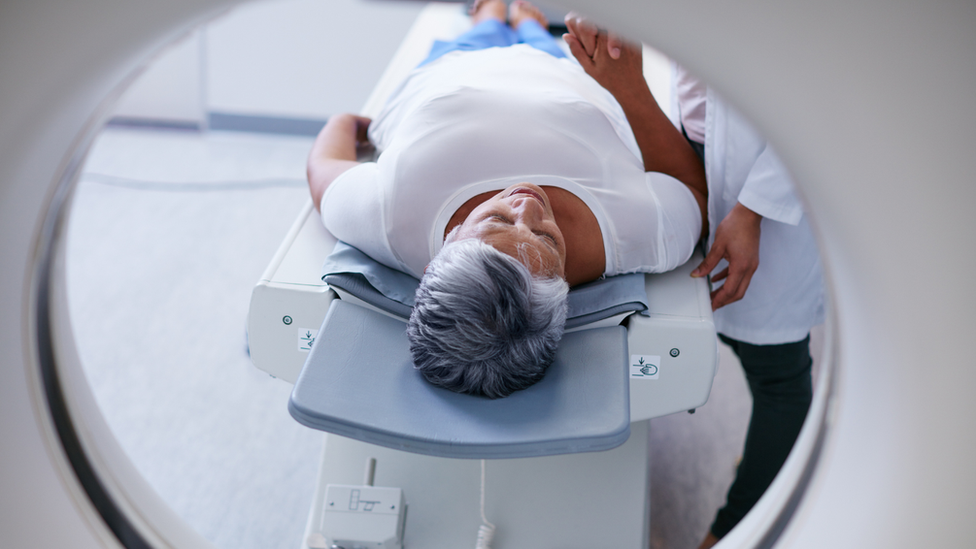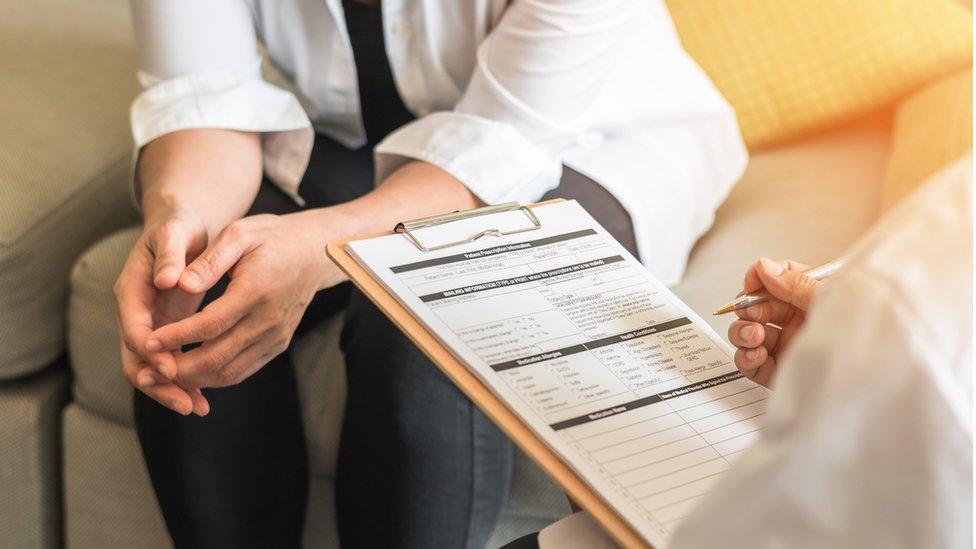New face cover for cancer test patients to stop Covid-19 spread
- Published

The device called the SNAP will make it safer for medics to perform nasendoscopy procedures
Surgeons have invented a new device to make it safer to diagnose some cancers during the coronavirus pandemic.
Most nose and throat investigations have been cancelled due to increased risks of medics contracting Covid-19 via patients' coughs and sneezes.
Two consultants have developed a device that clips over patients' masks and protects front-line workers.
The West Midlands-based doctors want to raise £50,000 they say is enough to make devices for use across the NHS.
Chris Coulson, a consultant ear, nose and throat surgeon at University Hospitals Birmingham NHS Foundation Trust, said procedures involving an endoscope to examine the nose or throat were known to put clinicians at a significantly increased risk of contracting coronavirus.
"When clinicians carry out a nasendoscopy it can make patients cough, sneeze, and splutter - which risks spreading the virus to doctors, nurses and therapists," he said.
"So, the advice has been to stop most of these procedures for now.
"Each time a traditional nasendoscopy is performed it poses a risk to the clinician.
"Each time it is not performed there is a chance of misdiagnosis or delayed treatment for the patient."

Chris Coulson and partner Ajith George want to raise £50,000 to produce enough devices for use in the NHS and around the world
His company endoscope-i Ltd, co-founded with Ajith George, a consultant head and neck surgeon at University Hospitals North Midlands, has now developed the SNAP.
It clicks on to a conventional surgical mask, creating a hole through which the clinician can pass an endoscope directly into a patient's nose.
A valve means, despite there being a hole, any coughs, sneezes or splutters are caught within the mask.
Mr George said: "If we can raise the money needed to produce the devices, we can keep looking after patients and ensure that diagnosis and treatment is not delayed."
In 2018, about 500,000 nasendoscopies were performed in the UK, but current figures suggest only about 8% of these are now taking place.

A SIMPLE GUIDE: How do I protect myself?
AVOIDING CONTACT: The rules on self-isolation and exercise
HOPE AND LOSS: Your coronavirus stories
LOOK-UP TOOL: Check cases in your area

Follow BBC West Midlands on Facebook, external, Twitter, external and Instagram, external. Send your story ideas to: newsonline.westmidlands@bbc.co.uk , external
- Published23 April 2020

- Published22 April 2020
